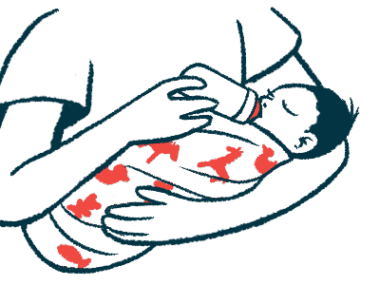Shock and gratitude over the new FDA-approved PNH treatment
I feel joy knowing that pharmaceutical companies are serving my disease
Written by |

December gifted the paroxysmal nocturnal hemoglobinuria (PNH) community a big win. Fabhalta (iptacopam), developed by Novartis, became the first oral therapy approved by the U.S. Food and Drug Administration (FDA) to treat PNH. The news prompted a surge of feelings in me, given my years of living with this condition and aplastic anemia.
When I opened my phone to an email from the Aplastic Anemia & MDS International Foundation with the subject line “PNH Treatment News: FDA Approves Oral Treatment,” I gasped in disbelief and thought to myself, “This can’t be true!” I was shocked to see the words FDA and PNH in the same sentence.
Since my diagnosis, health has been at the center of my world. As I’ve taken 33 medications in one day while fighting my rare illnesses and spent countless nights in the emergency room, this email meant more to me than I could possibly explain. If I were dramatic enough, I’d print the email, frame it, and hang it in my home. That’s how much I appreciated it.
The email gave me further explanation of Fabhalta, including some confusing jargon like “factor B” (a complement protein), but I was able to make out enough of the news. “It’s true,” I thought to myself. I clicked a link to learn more. As I read, I felt great joy to know that pharmaceutical companies are investing time, money, and energy into learning more about us as patients.
To anyone in any company who has dedicated time to learn about us, I thank you! It takes a great deal of service to dedicate your life to putting our rare disease on the map. As a PNH patient who deals with the disease’s ups and downs, I’m glad that my community is seen and served.
The boost of progress
It’s easy for those of us with rare diseases and chronic conditions to feel forgotten or left behind. Thankfully, I’ve felt an increase in attention to PNH over the past three years. It seemed as if our community was getting the recognition it deserves. And now we have a new oral therapy.
I’m asked many questions about my life with PNH. How do we deal with everyday life? Has our lifestyle changed? Do our symptoms affect us every day? Who is our support system? The queries are usually followed with “Please answer whatever you’re comfortable with.”
To that, I say, “I’m an open book.” I answer honestly and openly to create a candid conversation about what I go through as a patient. I’ll offer the same when exploring this new therapy.
As we patients, caregivers, and companies navigate this road together, I hope we can scream from the rooftops about PNH. Being rare is a tough role to navigate, but I’m filled with joy for this new light that’s been shined on us. Let’s continue this progress together and remember we’re all helping one another on our journeys.
Note: PNH News is strictly a news and information website about the disease. It does not provide medical advice, diagnosis, or treatment. This content is not intended to be a substitute for professional medical advice, diagnosis, or treatment. Always seek the advice of your physician or other qualified health provider with any questions you may have regarding a medical condition. Never disregard professional medical advice or delay in seeking it because of something you have read on this website. The opinions expressed in this column are not those of PNH News or its parent company, Bionews, and are intended to spark discussion about issues pertaining to paroxysmal nocturnal hemoglobinuria.






